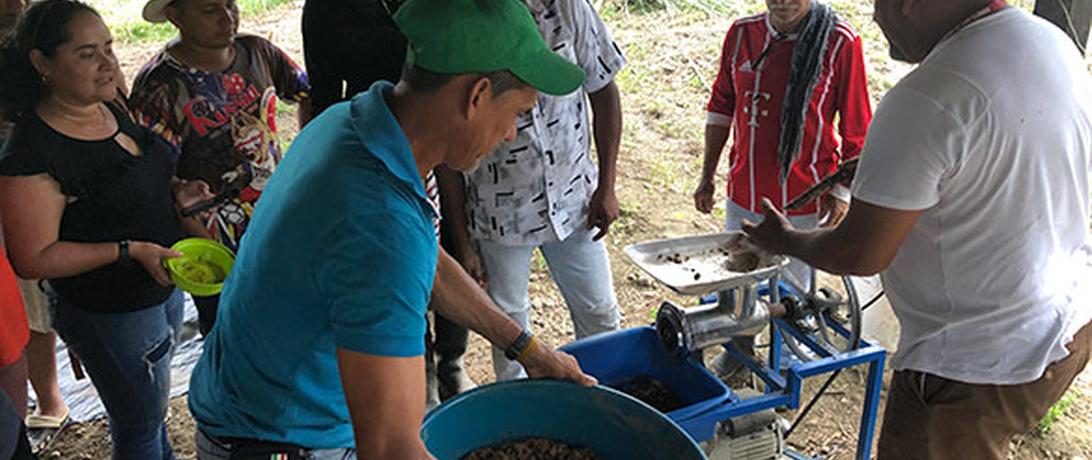The Rural Alternative School (ERA) of San José del Guaviare is located in a region strongly affected by the social and armed conflict. However, reincorporated excombatants and the local community have worked together to consolidate this scenario as an economic and rural development platform for the Guaviare region. Currently, the ERA of San José harnesses the local agricultural diversity as well as the established trade routes and the work conducted by cooperatives such as the Multi-Active Cooperative of the Colombian Amazon (COOAMACOL), the Jaime Pardo Leal Cooperative (COOJAPAL), and the Multi-Active Cooperative of Solidary Campesino Families of Guaviare (COOMFASOL).
This ERA has successfully produced artisanal concentrates for animal feed from local agricultural materials. This project has an annual yield of 15,360 kg of feed, which is marketed locally and reduces the cost of livestock production by 30%. Thanks to the support provided by the ERA, project components are connected to other productive units such as animal husbandry, crop production for food security, and agricultural marketing in farmers’ markets.
The ERA of San José has also become a collaborative platform for families registered in the National Comprehensive Program for the Substitution of Illicit Crops (PNIS). Through the Contingency Plan to Support Ex-Coca Growers, these families participated in agricultural training, market creation, and infrastructure improvement, among other activities. The Contingency Plan provided participants with a stipend in exchange for their time invested in community service and training activities.
An example of this collaborative work can be seen in the series Women Seeding Peace, which is based on the life stories of women who left coca crops behind. The chapter dedicated to Socorro, who subscribed an agreement with the PNIS program, tells how the lessons learned at the ERA in San José del Guaviare have enabled her to make her fish farming enterprise sustainable.
Joint work like the above, has allowed the establishment of a Fair-Trade Agreement between the cooperatives of ex-combatants and the families of the region that are part of the PNIS program. The agreement offers them discounts on the purchase of organic feed for animals produced by the ERA, while encouraging the sale of agricultural products at fair prices.
Furthermore, this ERA also works on biodiversity conservation projects in the area. The area’s rich biodiversity is being threatened by external projects that do not have conservation or sustainability in mind.
This ERA has allies such as the University of Los Llanos, the World Food Program (PMA), the National Training Service (SENA), and the UN Verification Mission in Colombia.
